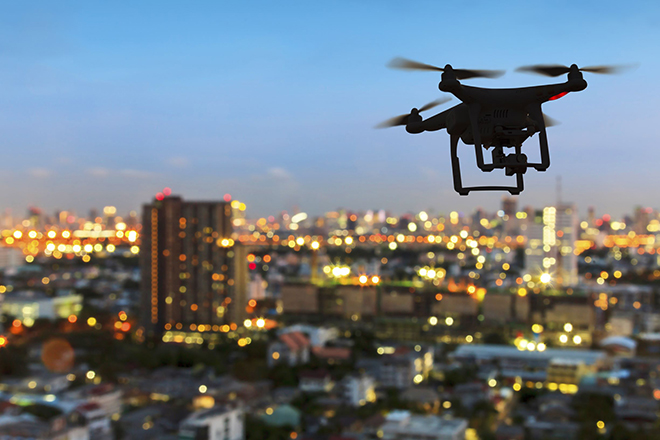A CYBERSECURITY start-up has partnered with Cranfield University and the Connected Places Catapult in Milton Keynes in a project to support the future of drones and autonomous flying vehicles.
The Unmanned Aircraft Systems Authentication System project will focus on the commercial potential of drones and, crucially, ways to ensure that the communication channels required to control and fly the drones are secure.
It has won funding from UK Research and Innovation’s Future Flight Challenge, part of the Industrial Strategy Challenge Fund, with an aim to revolutionise aviation and drone usage.
Cranfield and the Connected Places Catapult will be working with start-up company ANGOKA on the UASAS project. They will pool their expertise to create an authentication system that will provide a trusted identification service for drone usage and protect communications from potentially devastating cyberattacks.
Trusted identification will allow organisations to ensure that drones are flying in the right zones and without adverse effects to other parties, increasing overall confidence in drone technology.

Drones are poised to become ubiquitous devices. They do not require runways, can be small and agile and can hover over and survey areas that might be too risky for humans.
Their commercial potential is staggering, and already companies like Wing – a subsidiary of Alphabet, Google’s parent company – and Amazon are beginning to explore this market.
Delivery of goods and medicine, search and rescue and infrastructure, agricultural and environmental monitoring are among the potential uses set to propel drones into everyday business and personal life.
However, for drones to truly take off, there needs to be a way to ensure that the communication crucial to controlling and flying the drones is protected. Without this key element, drones are at risk of being hacked and hijacked. Securing drone communication ensures that national infrastructure, such as airports and mobile towers, is also protected.
Dr Saba Al-Rubaye, senior lecturer in autonomous and connected systems and project lead at Cranfield University, said: “There is huge scope for drones and unmanned aerial vehicles to transform air transport activities and services. This project will help to harness that potential in a safe and secure way.”
…………
Advertisement
…………
Mark Westwood, chief technology officer at Connected Places Catapult, added: “With drones being set to become part of everyday life, one of the essential components is highly reliable and resilient security and authentication systems to ensure safe use.
“We are looking forward to being part of a project which will increase the confidence in drone technology and support the growth of a valuable market sector.”
ANGOKA is an IoT security company focused on protecting communications for Smart Cities and Mobility. Headquartered in Belfast, with offices in London and The Hague, it offers solutions that protect devices’ identities.
The Internet of Things boom has led to an increase in insecure networks coming online and ANGOKA’s solutions safeguard critical machine-to-machine communication integrity and data provenance.
The UASAS project will develop ANGOKA’s work in the National Cyber Security Centre’s Cyber Accelerator in terms of authentication and identity management for drones and IoT devices.
Chief executive Yuri Andersson said: “Securing the communication of drones and unmanned vehicles will have a great impact across industries, from logistics to emergency response. We are excited to lead on this innovative project with world-class partners that will pave the way for safe and ubiquitous drone usage.”
…………



